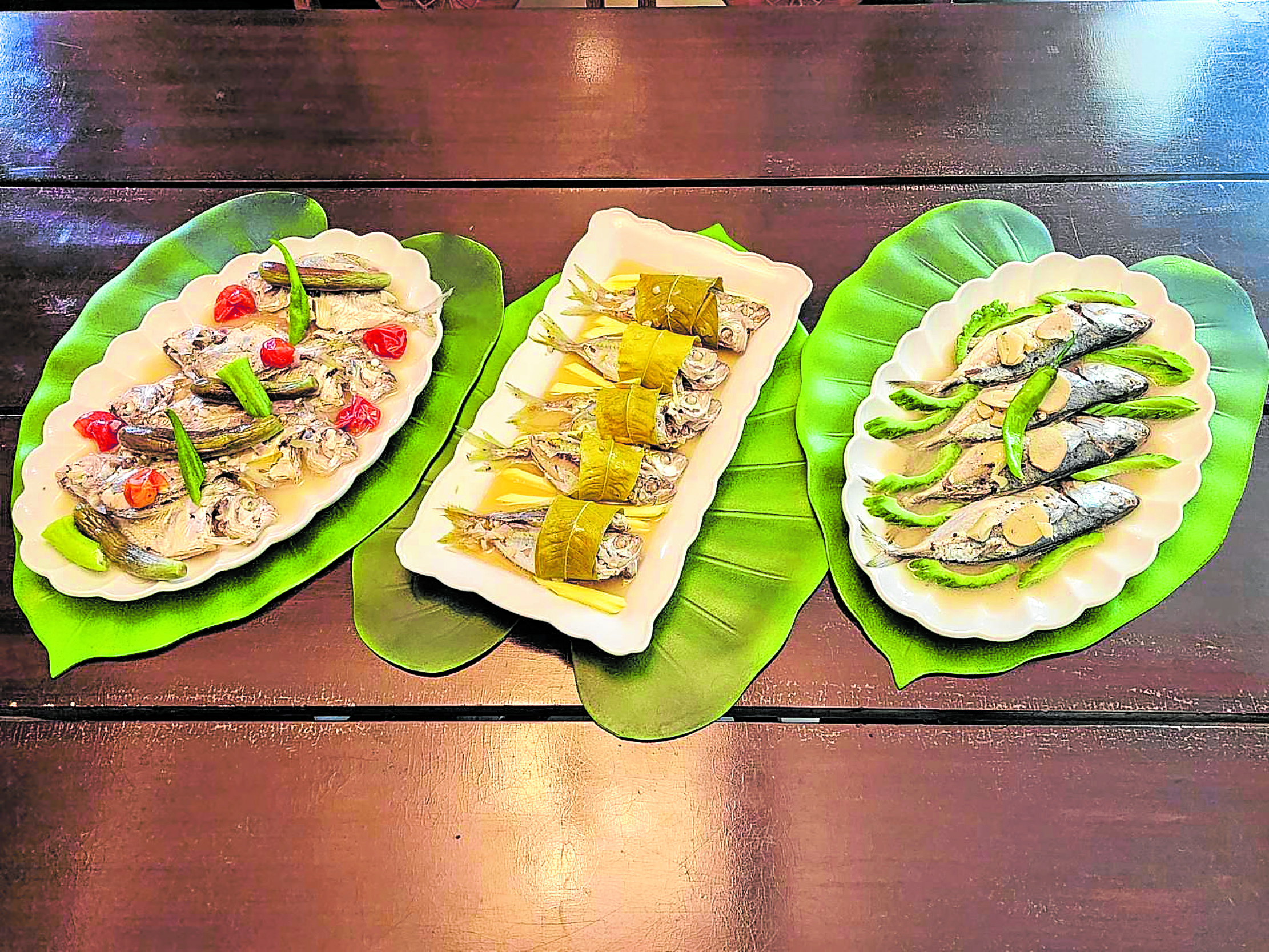
We were having a meeting here at home on the Wheelchair Project. Not knowing that Vim Nadera was a therapist, I was surprised to get a pamphlet on suicide from him. (He was nuts enough to volunteer for this project.)
There were five noisy Makiling artists around me, all crazily, hilariously maniacal. Hardly suicide material. Ganyan ba ang magpapakamatay?
“What are friends are for?” quipped Don Salubayba. “Let’s join us!” threw in Gerry Leonardo. I soon found out that Pinoy grammatical mistakes have even been printed in three little books! Here’s my own offering. I did it on my own idea.
Spoofs
The Pinoy has ever been bothered by speaking a borrowed tongue. Now, anything the Filipino cannot tackle he spoofs. I remember, in the early ’30s, how children’s songs and rhymes made fun of the English we were forced to learn. Here is one that everybody knows. If you never heard it, you are hopelessly mental colony.
One day, isang araw
I saw, nakakita
One bird, isang ibon
Flying, lumilipad
I shoot, binaril ko
I pick, pinulot ko
I cook, niluto ko
I eat, kinain ko
There is the counting song that goes:
One two, bato
Three four, bapor
Five six, intsik. . . (I forgot the rest)
And the spoof on the American teachers’ “Come dear children,” a morning greeting to the class:
Come dear children kakain
Luto na ang sinaing
Come and run, Come and run
Luto na ang sinigang!
Even the then newly minted national anthem in English was not spared. It became:
Land of the morning
Sampalayok na kanin
Sinong kumain
Si Mariang duling!
Or:
I love my own,
My pantalon… etc.
Correct me if I’m wrong but even much earlier, Spanish was made fun of, as well as English, in this kiddie song:
Pen pen de sarapen
De cuchillo de almacen
How? How? da carabao?
Ba-tu-ten!
And this blasphemous one patterned after the sign of the cross that begins with “Antanda”:
Antanda ng kundot-kundot
Balumbalunan ng manok
Ilaga ma’y hindi lumambot
Nguyain ma’y lumalangutngot.
‘Espanggol’ like ‘kastilaloys’
If we call English-speaking Filipinos “wursh-wursh” or “English spokening,” we made fun of our dads, too, when they spoke Espanggol like kastilaloys. We imitated them. “Si, para si, para buto ng sili!”
English was eventually integrated into Pinoy songs, but still with a kick, as in this Ilocano ditty:
Ag lipstick ka nga ag lipstick
Di ka man nagbrush-your-teeth
Ay, ay, salidum-ay, salidum-ay di way
Ag-eyebrow ka nga ag eyebrow
Nagmukha ka namang multo
Ay, ay, salidum-ay, salidum-ay, di way
Ag high heel ka nga ag high heel
Nag dakel nga iyong masel
Ay, ay, salidum-ay, salidum-ay, di way
Ag mini ka nga ag-mini
Binti mo’y parang kamoti
Ay, ay salidum-ay, salidum-ay diway
Pa sexy ka nga pa-sexy
Katawan mo’y kasla bubuli
Ay, ay, salidum-ay
Salidum-ay diway
Yoyoy Villame
But the crown jewel of them all was when Yoyoy Villame, comic and singer, whose English wouldn’t pass Grade IV, came up with this classic:
Magellan
On March 16, 1521
When Philippines was discovered by Magellan
They were sailing day and night across the big ocean
Until they saw a small Limasawa island
Magellan landed in Limasawa at noon
The people met him very welcome on the shore
They did not understand the speaking they have done
Because Kastila gid at Waray-Waray man
When Magellan landed in Cebu City
Rajah Humabon met him, they were very happy
All people were baptized and built the church of Christ
And that’s the beginning of our Catholic life
When Magellan visited in Mactan
To Christianize them everyone
But Lapu Lapu met him on the shore
And drive Magellan to go back home
Then Magellan got so mad
Ordered his men to camouflage
‘Mactan island we could not grab
‘Cause Lapu Lapu is very hard’
Then the battle began at dawn
Bolos and spears versus cannons and guns
When Magellan was hit on his neck
He stumble down and cried and cried
Oh, mother, mother I am sick
Call the doctor very quick
Doctor, doctor, shall I die?
Tell my mama do not cry
Tell my mama do not cry
Tell my mama do not cry
That’s the end of Magellan
In the island of Mactan long time ago
Ladies and gentlemen
Like a good Pinoy, if someone is browbeating you for your bad English, don’t just do something, stand there!













































